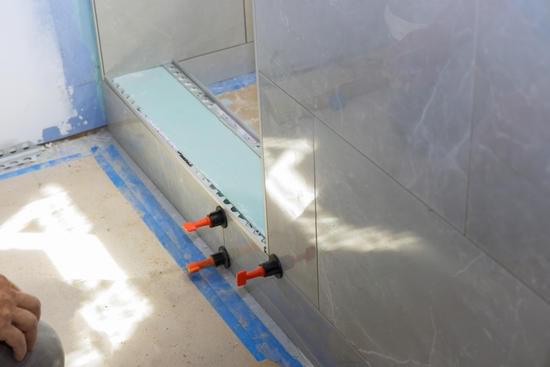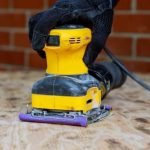Are there any federal home improvement grants available for homeowners looking to upgrade their living spaces? Federal home improvement grants are crucial financial aid programs that assist individuals in making necessary repairs or renovations to their homes. These grants can help improve living conditions, increase property value, and promote overall safety and wellbeing.
Federal home improvement grants are designed to provide financial assistance to homeowners who may not have the means to fund necessary improvements on their own. Whether it’s addressing structural issues, upgrading energy efficiency, or enhancing accessibility, these grants aim to support homeowners in creating safe and comfortable living environments. By understanding the purpose of federal home improvement grants, individuals can take advantage of these valuable resources to make meaningful enhancements to their homes.
In order to access federal home improvement grants, homeowners must meet specific eligibility criteria set by government agencies overseeing these programs. Eligibility requirements may vary depending on the type of grant being pursued, but generally include factors such as income level, property ownership status, and the nature of the proposed improvements. By familiarizing themselves with these criteria and following the application process diligently, homeowners can increase their chances of securing a federal home improvement grant to address their housing needs.
Understanding Federal Home Improvement Grants
Federal home improvement grants are financial assistance provided by the federal government to help homeowners make necessary upgrades and repairs to their homes. These grants play a crucial role in ensuring that individuals have safe, secure, and comfortable living conditions. By offering financial support for home improvement projects, federal home improvement grants aim to promote energy efficiency, increase property values, and overall enhance the quality of life for homeowners.
What Are Federal Home Improvement Grants?
Federal home improvement grants are funds allocated by the government for specific purposes such as repairing roofs, upgrading heating systems, or making homes more accessible for individuals with disabilities. Unlike loans that need to be repaid, these grants do not require repayment as long as the homeowner complies with the terms and conditions set forth by the grant program.
The availability of federal home improvement grants varies depending on various factors such as location, income level, and specific needs of the homeowner.
Eligibility Criteria for Federal Home Improvement Grants
To qualify for federal home improvement grants, homeowners typically need to meet certain criteria set by the government. These criteria may include income limits, property ownership requirements, and specifics related to the intended use of the grant funds.
Additionally, some grant programs may prioritize applicants based on factors like age, disability status, or geographic location. It is important for homeowners to carefully review the eligibility requirements for each grant program before submitting an application to ensure they meet all necessary qualifications.
Types of Federal Home Improvement Grants
Federal home improvement grants can provide essential financial assistance to homeowners looking to make necessary improvements to their properties. These grants are typically offered by the government to help individuals maintain and improve the safety, energy efficiency, and overall value of their homes. By understanding the different types of federal home improvement grants available, homeowners can better navigate the process of securing funding for their projects.
There are various types of federal home improvement grants that individuals may qualify for, including but not limited to:
- Weatherization Assistance Program (WAP): This program helps low-income families improve the energy efficiency of their homes, reducing utility costs and increasing comfort.
- Home Energy Assistance Program (HEAP): HEAP provides financial assistance to low-income households for heating and cooling expenses, helping them make necessary upgrades to improve energy efficiency.
- Section 504 Home Repair Program: This program offers loans and grants to elderly homeowners with low incomes to fund repairs and renovations that will ensure safe living conditions.
It is important for homeowners to understand the differences between grants, loans, and tax credits when considering federal home improvement assistance. While grants do not need to be repaid, loans must be paid back over time with interest. Tax credits, on the other hand, offer reimbursement for a portion of expenses incurred during home improvement projects. By carefully evaluating their options, homeowners can determine which type of federal assistance best suits their needs and financial situation.
How to Apply for Federal Home Improvement Grants
Federal home improvement grants can be a valuable resource for homeowners looking to make necessary repairs or upgrades to their homes. These grants are typically provided by the federal government and aim to assist low-income families, elderly individuals, and people with disabilities in improving the safety and livability of their homes. By accessing these grants, homeowners can address critical issues such as energy efficiency, accessibility modifications, and structural repairs that may otherwise be financially out of reach.
When it comes to applying for federal home improvement grants, it’s important to understand the process and requirements involved. Here is a step-by-step guide to help you navigate the application process effectively:
- Research available grant programs: Start by researching the different federal home improvement grant programs available. Each program may have specific eligibility criteria, funding limits, and project requirements.
- Determine your eligibility: Review the eligibility criteria for each grant program to determine if you meet the requirements. Eligibility factors may include income level, homeownership status, and the nature of the home improvement project.
- Prepare necessary documentation: Gather all required documents such as proof of income, property ownership documents, project estimates, and any other information requested in the application guidelines.
- Submit your application: Follow the instructions provided by the grant program to complete and submit your application. Be sure to double-check all information and documentation before submitting to avoid delays or rejection.
By following these steps diligently, you can increase your chances of approval for a federal home improvement grant. Additionally, consider these tips to strengthen your application:
- Provide detailed project plans: Clearly outline the scope of work you plan to undertake with the grant funds, including cost estimates and timelines.
- Demonstrate need: Highlight why your home requires improvements for safety, accessibility, or energy efficiency reasons. Providing supporting documentation such as inspection reports or quotes from contractors can strengthen your case.
- Follow up on your application: Stay informed about the status of your application by regularly checking in with the grant program administrators. Be prepared to provide additional information if requested.
By taking proactive steps and being thorough in your application process, you can maximize your chances of securing a federal home improvement grant for your much-needed household projects.
Top Federal Home Improvement Grant Programs
Department of Agriculture Rural Development Grants
One of the top federal home improvement grant programs available is offered by the Department of Agriculture through its Rural Development agency. These grants are specifically designed to help rural homeowners make necessary repairs and improvements to their homes.
The funds can be used for a variety of projects, including repairing roofs, updating plumbing or electrical systems, and making homes more energy-efficient. Eligibility requirements for these grants typically include income limits, geographic location in a rural area, and demonstration of need.
Department of Housing and Urban Development (HUD) Home Improvement Grants
Another valuable federal home improvement grant program is provided by the Department of Housing and Urban Development (HUD). HUD offers grants to low-income homeowners who need assistance with critical home repairs or improvements. These grants can cover a wide range of projects, such as fixing structural issues, installing accessibility features for disabled individuals, or upgrading to energy-efficient appliances. Qualifications for HUD home improvement grants may include income verification, homeowner occupancy, and compliance with local building codes.
Energy Star Rebate Program
For homeowners looking to make energy-efficient improvements to their homes, the Energy Star Rebate Program is an excellent option. This federal program offers rebates and incentives for upgrading to energy-efficient appliances, windows, doors, and HVAC systems.
By participating in this program, homeowners can not only save money on their utility bills but also reduce their carbon footprint. Requirements for the Energy Star Rebate Program vary depending on the type of improvement being made but may include purchasing qualifying products and submitting receipts for reimbursement.
These top federal home improvement grant programs provide valuable resources for homeowners looking to make necessary repairs or upgrades to their homes. By taking advantage of these programs, eligible individuals can access financial assistance to improve the safety, comfort, and efficiency of their homes. It’s important for homeowners to thoroughly research each program, understand the eligibility requirements, and follow the application process diligently in order to increase their chances of receiving a federal home improvement grant.
Challenges of Applying for Federal Home Improvement Grants
Applying for federal home improvement grants can be a daunting task, as there are various challenges that individuals may face during the application process. One of the biggest challenges is meeting the eligibility criteria set by the government agencies or organizations offering the grants.
These criteria often include requirements related to income levels, home ownership status, and the specific types of improvements needed. Ensuring that you meet all of these requirements can be time-consuming and may require gathering various documents and information.
Another challenge when applying for federal home improvement grants is navigating the application process itself. The paperwork involved in applying for grants can be overwhelming, especially for individuals who are not familiar with grant applications. Understanding the different forms to fill out, documentation to provide, and deadlines to meet can be a complex process. Additionally, competition for these grants can be fierce, with many individuals vying for limited funding opportunities.
Securing federal home improvement grants also requires patience and persistence. The application review process can take time, sometimes months before applicants receive a decision on whether they have been approved or not. This waiting period can be frustrating for homeowners who are eager to start their renovation projects. Moreover, dealing with any potential rejections or denials can be disheartening but it’s important to not give up hope and continue exploring other funding options or resources available in your community.
Success Stories of Homeowners Who Received Federal Home Improvement Grants
Federal home improvement grants have been instrumental in helping homeowners across the country upgrade their properties, make necessary repairs, and enhance the overall quality of their living spaces. These grants provide financial assistance to individuals or families who may not have the resources to fund home improvement projects on their own. By offering this support, federal home improvement grants contribute to the well-being of homeowners and help maintain and improve communities.
One inspiring success story is that of the Johnson family from Ohio. The Johnsons applied for a federal home improvement grant to repair their roof, which had been damaged in a recent storm.
With the assistance of the grant, they were able to replace the roof and make additional improvements to their home’s energy efficiency. The Johnsons not only saw a significant increase in the value of their property but also experienced lower utility bills thanks to the upgrades made possible by the grant.
Another noteworthy example is the Martinez family from Texas. After facing challenges with outdated plumbing and electrical systems in their home, the Martinezes turned to federal home improvement grants for help. With funding assistance, they were able to modernize these vital systems, improving the safety and functionality of their home. The grant not only enhanced their living conditions but also increased the overall comfort and enjoyment of their property for years to come.
| Success Story | Location |
|---|---|
| The Johnson Family | Ohio |
| The Martinez Family | Texas |
Resources for Finding Federal Home Improvement Grants
Federal home improvement grants can be a valuable resource for homeowners looking to make necessary upgrades or repairs to their homes. These grants can help offset the costs of renovations, making it more accessible for individuals and families to create a safe and comfortable living space. However, finding information on these grants can sometimes be challenging.
One of the best resources for finding federal home improvement grants is the official website of the US Department of Housing and Urban Development (HUD). HUD provides detailed information on various grant programs available to homeowners, including eligibility requirements and application procedures. Additionally, HUD offers resources for finding local grant opportunities through state and community programs.
Another valuable resource for homeowners seeking federal home improvement grants is Grants.gov. This website serves as a comprehensive database of all federal grant opportunities across different government agencies. By searching for keywords related to home improvement or housing assistance, individuals can identify specific grant programs that may be applicable to their needs. Additionally, Grants.gov offers tips on how to navigate the application process effectively.
Lastly, contacting your local government office or housing authority can also provide useful information on federal home improvement grants available in your area. These offices may have access to additional resources or grant programs that are specific to your region. By reaching out to these local agencies, homeowners can gain insights into potential funding sources for their renovation projects.
| Resource | Description |
|---|---|
| US Department of Housing and Urban Development (HUD) | Official website with detailed information on grant programs |
| Grants.gov | Comprehensive database of federal grant opportunities |
| Local Government Offices/Housing Authorities | Contacting local agencies for regional grant information |
Conclusion
In conclusion, federal home improvement grants play a crucial role in helping homeowners make necessary renovations and repairs to their homes. These grants provide financial assistance to individuals who may not have the means to fund these projects on their own, ultimately improving the safety, functionality, and overall value of their properties. By offering a variety of grant programs tailored to different needs and circumstances, the government aims to support homeowners in maintaining and enhancing their living spaces.
When considering whether to apply for federal home improvement grants, it is important for homeowners to understand the eligibility criteria and types of grants available. By following the proper application process and taking advantage of resources provided by government agencies and websites, individuals can increase their chances of securing funding for their home improvement projects. While challenges may arise during the application process, perseverance and careful planning can help overcome them in order to access much-needed financial assistance.
In closing, it is worth exploring the possibility of applying for federal home improvement grants if you are in need of assistance with renovating or repairing your home. The impact of receiving a grant can be significant not only on your property but also on your quality of life.
By taking advantage of these programs, homeowners have the opportunity to make meaningful improvements to their homes that can benefit them for years to come. So, don’t hesitate to research available grant programs and start the application process – you may find that there are indeed federal home improvement grants that could help you achieve your housing goals.
Frequently Asked Questions
Who Is Eligible for Government Home Improvement Grant in Wisconsin?
Eligibility for government home improvement grants in Wisconsin typically depends on factors such as income level, property ownership status, and specific program requirements. Low-income families or individuals may qualify for assistance to make necessary repairs or improvements to their homes.
What Is the Ohio Housing Assistance Grant Program?
The Ohio Housing Assistance Grant Program provides financial support to eligible homeowners in Ohio who need help with home repairs or modifications. This program aims to assist low-income households in improving the safety and livability of their homes through grants or loans.
What to Do When Your House Is Falling Apart and You Have No Money?
When your house is falling apart and you have no money, it can be a challenging situation to navigate. One option is to explore government assistance programs that offer grants or loans for home repairs.
Another option is to seek out nonprofit organizations or local charities that may provide support for essential home improvements. Additionally, you could consider reaching out to community resources or crowdfunding platforms for assistance in addressing urgent repair needs around your home.

I’m thrilled to have you here as a part of the Remodeling Top community. This is where my journey as an architect and remodeling enthusiast intersects with your passion for transforming houses into dream homes.





